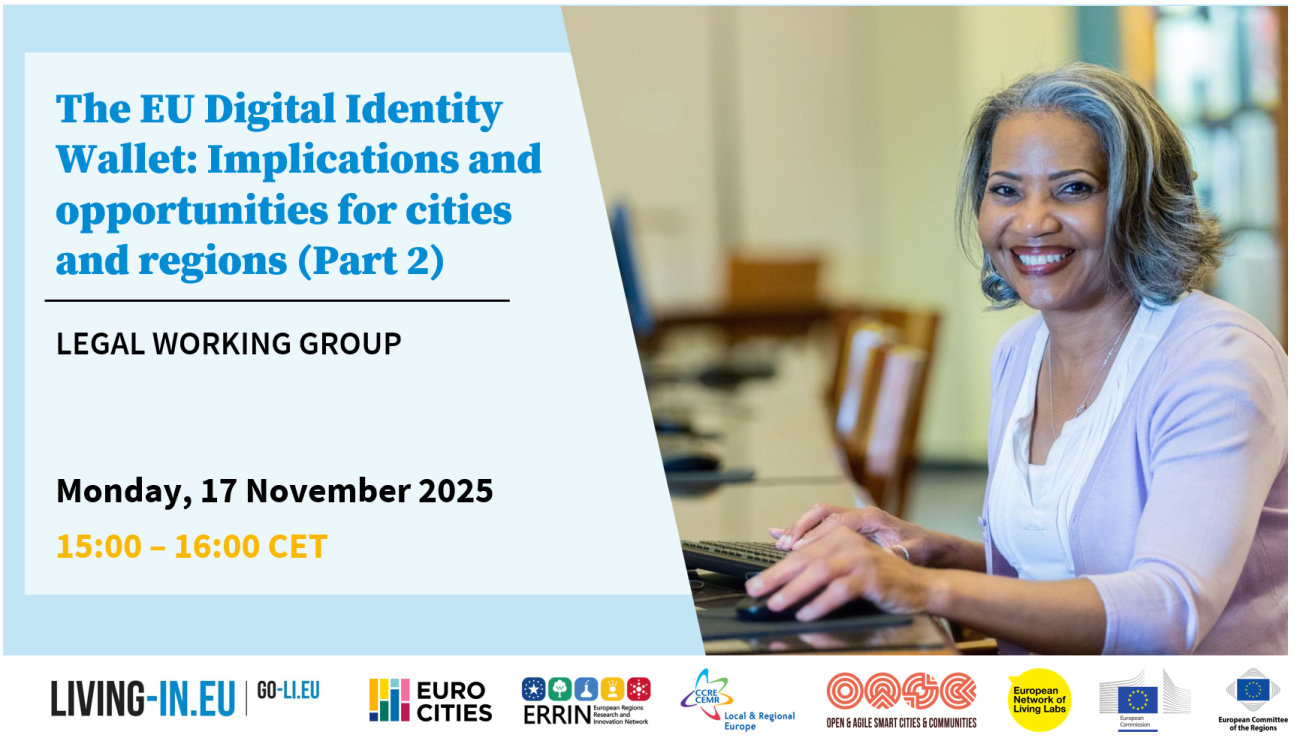The EU Digital Identity Wallet: Implications and opportunities for cities and regions (part 2)

Background
The EU Digital Identity (EUDI) Wallet, introduced under the new EUDI Framework Regulation adopted in May 2024, aims to let EU citizens store their national eID on mobile devices and link it with documents and services such as driving licenses, payment data, and health certificates. Building on the 2014 eIDAS Regulation, the framework requires Member States to provide at least one EUDI Wallet to all citizens and residents by December 2026, enabling secure identification and certified document exchange across borders. The European Commission is drafting rules on functionalities, certification, and standards, while Member States are developing compliant solutions and testing prototypes through large-scale pilot projects in areas like government services and online payments.
Objective
Both public administrations and private entities will be required to accept the EUDI Wallet, with public bodies (including cities and regions) having until December 2027 to fully adopt it. Local and regional authorities will play a central role in issuing and verifying credentials for accessing digital services: This could include accepting eID credentials to allow citizens to log into online city portals or issuing/verifying proof of residence, parking permissions and many other.
Therefore, the Living-in.EU Legal Working Group is organising a two-part webinar series on the EUDI Wallets. Following a first session on the legal aspects of the EUDI Framework Regulation, this second session on 17 November 2025, 15:00-16:00 CET will focus on the EUDI Wallet in real-life settings, namely the Portuguese use case: Participants will hear from the Portuguese national Digitalisation Agency ARTE about the eID infrastructure they are deploying in practice. Providing the perspective of a local public authority, the city of Lisbon will share their approach to integrating eID solutions into their local digital services.
Register here and join us to discuss questions like:
How are responsibilities for digital identity organised in local and regional administrations?
How can cities and regions navigate issues such as security, data protection and interoperability?
Which impact will Member States’ choices have on the local implementation of eID?
Agenda
15:00-15:10 | Welcome and introduction
15:10-15:25 | A national eID infrastructure in real-life settings: The case of the Portuguese id.gov app
(Ana Paula Graça, Portuguese Agency for the Technical Reform of the State/ARTE)
15:25-15:40 | eID implementation at local level: Experience from the city of Lisbon
(Valter Ferreira and Sandra Godinho, City of Lisbon)
15:40-15:55 | Q&A and discussion
15:00-16:00 | Conclusion







